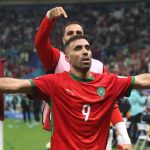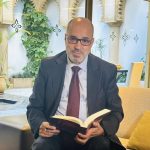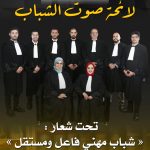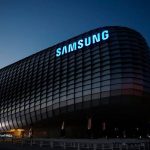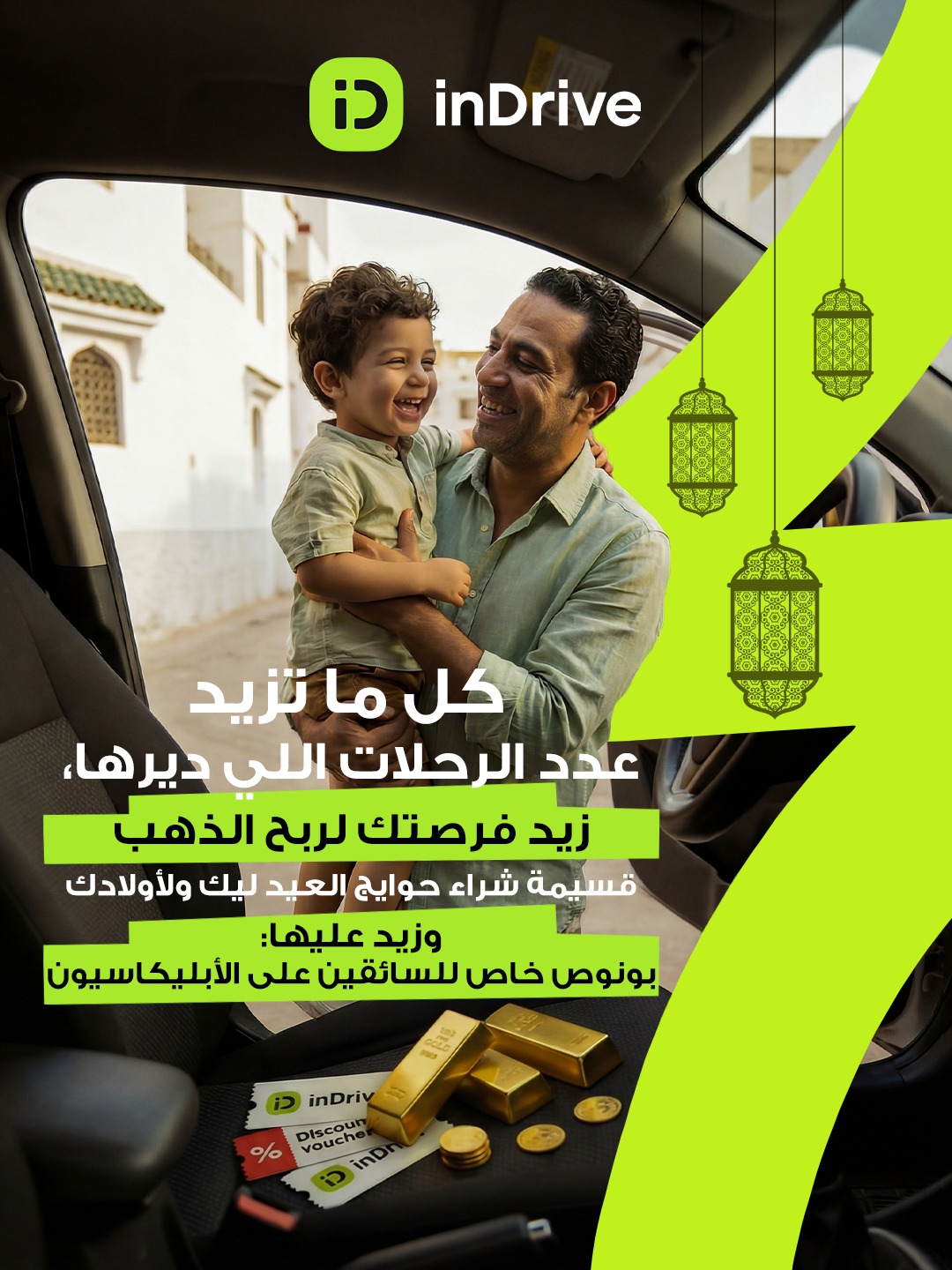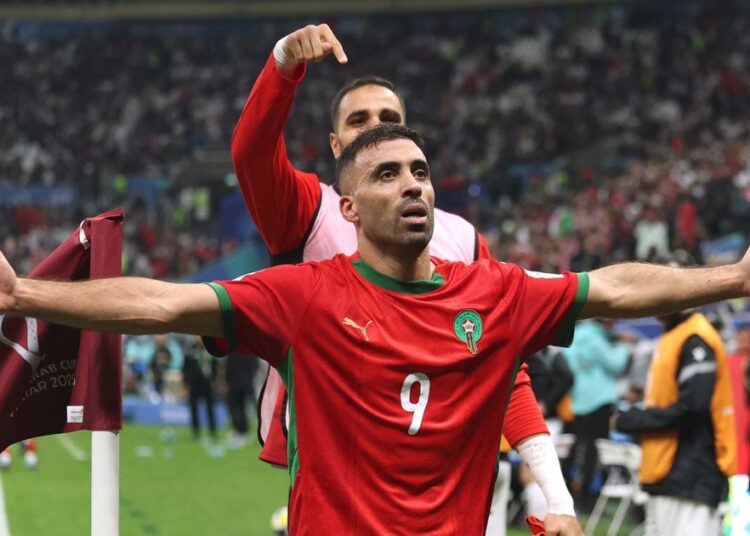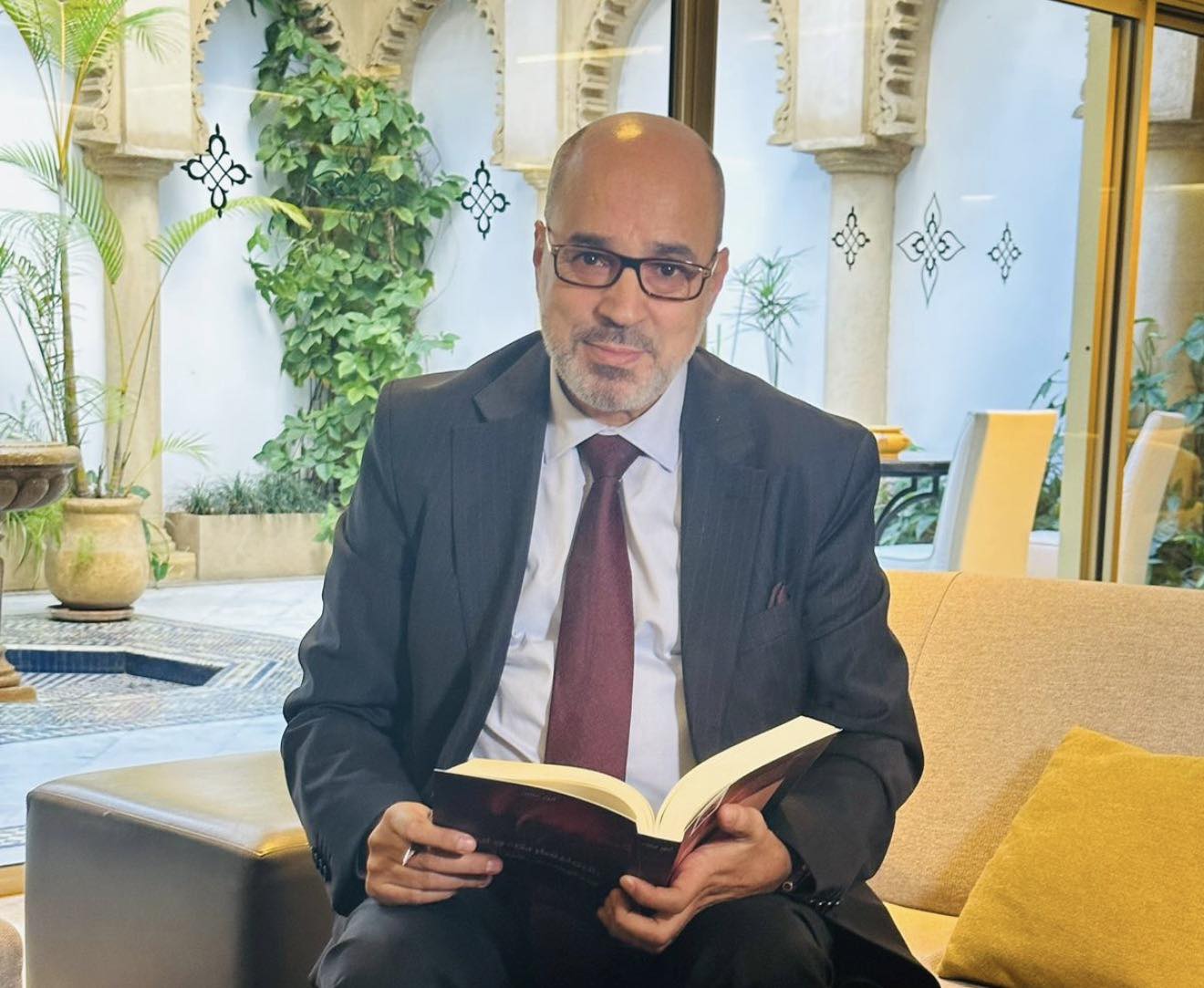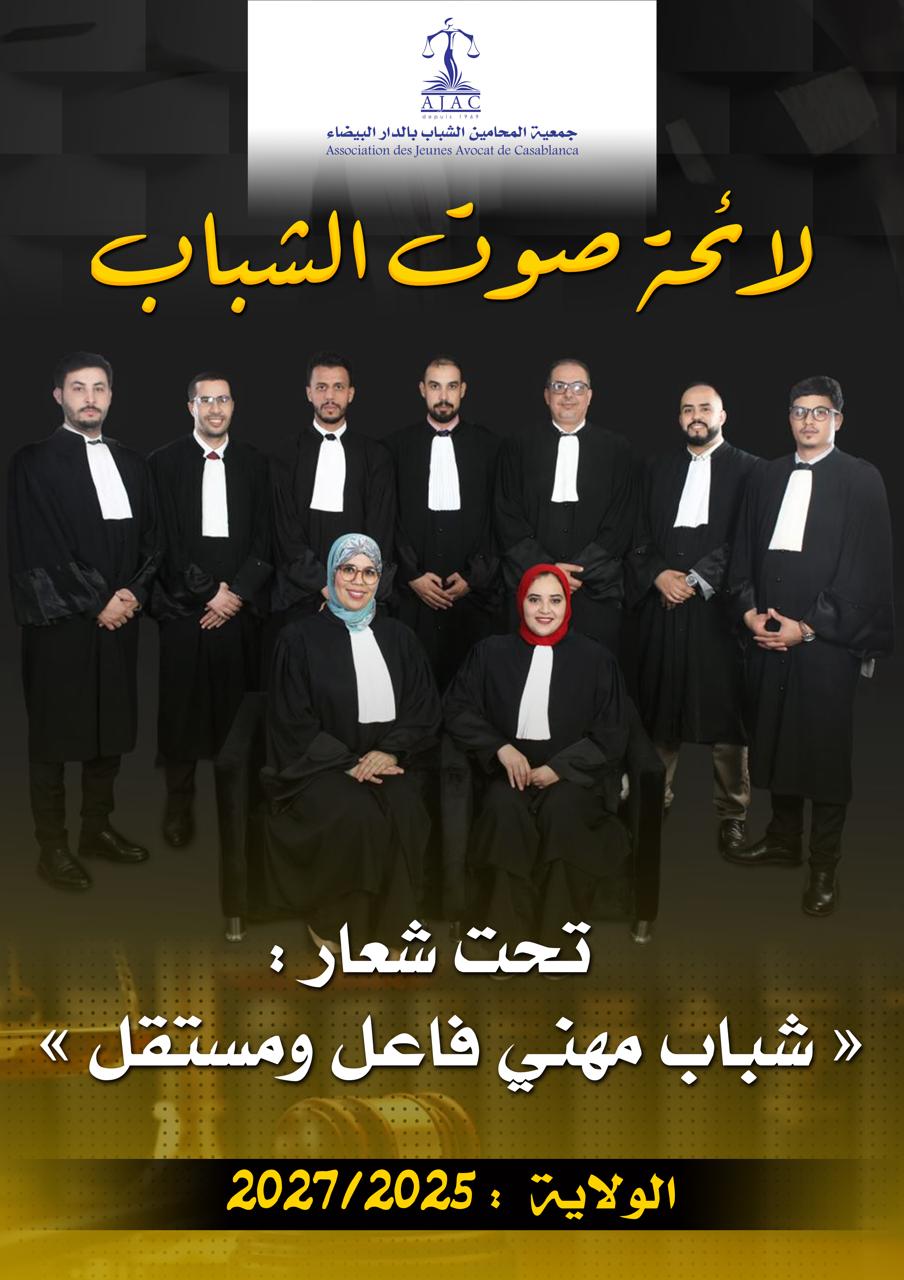On the occasion of Morocco’s Throne Day, Moroccan Zoom welcomes an outstanding Moroccan diplomat: Ms. Chaimae Bouazzaoui.
Over the past decades, Morocco has undergone a profound transformation across multiple sectors under the visionary leadership of His Majesty King Mohammed VI, may God bless Him. In this exclusive interview, we explore the Kingdom’s achievements, ongoing challenges, and its growing role on the international stage through the perspective of Chaimae Bouazzaoui, Morocco’s first female diplomat in Israel. The following questions aim to spark meaningful discussion on Morocco’s development model and governance strategy.
Ms. Bouazzaoui was a career diplomat at the Moroccan Ministry of Foreign Affairs. She was posted to Tel Aviv in 2021 following the historic Abraham Accords and the official resumption of diplomatic relations between Morocco and Israel. Born in Meknes, she served as Political Counselor at the Liaison Office of the Kingdom of Morocco in Israel, actively contributing to the Negev Forum and to strengthening bilateral ties. Her previous roles include diplomatic missions in Tunis and at the United Nations in New York, with a focus on multilateral cooperation and U.S.-Moroccan relations. A graduate of IPSI-Tunis and Bar-Ilan University, she embodies a modern, forward-looking, and values-driven Moroccan diplomacy.
I. Reforms and Internal Evolution
How do you perceive the reforms undertaken by Morocco under the leadership of His Majesty King Mohammed VI, in the recent years?
Since the accession of His Majesty the King Mohammed VI, God Bless Him, to the Throne, Morocco has engaged a human-centred structural reforms’ policy. The far-reaching transformations that Morocco has undergone are the fruit of His Majesty’s leadership, driven by large-scale multidimensional megaprojects that gave the birth to an Industrial renaissance, particularly in the automotive and aerospace industries following genius economic reforms.
Morocco, the sole Atlantic-Mediterranean African gateway to America, Europe and the Middle East, was internationally praised for its economic boom combined with social success-stories beyond borders. On the human rights’ level, Morocco has led the way in promoting religious, press and social media freedom nationally and internationally. Morocco also significantly advanced the rights of both women and men, especially youth towards more emancipation. For instance, Revisions to the Moudawana, alias the Moroccan family code, have, bolstered women’s rights, making, in particular, the institution of marriage stronger and rock-solid. The Moroccan reforms align with Morocco’s culture First, for the following reasons:
First of all, History and Legacy. These reforms are not etched in a pattern of rupture; but
rather in continuity, perfect harmony with the national policies of late Kings, their Majesties
Mohammed V and Hassan II, God Bless their souls. As His Majesty stated on the occasion of
the 26th anniversary of His accession to the Throne of His glorious Ancestors: “Our country’s
achievements were not by accident. They are the result of a long-term vision, of the
pertinence of the major development choices made, and of the political and institutional
security and stability enjoyed by our country.”
Second, Multidimensionality. The reforms were not only limited to the social ones, they
were implemented on various fronts, including the constitutional, economic, educational,
scientific and infrastructural. Societies in developing nations hardly ever aim for more
“audacious reform,” which refers to decisions that are typically made naturally in developed
Nations. However, Morocco, an emerging Nation, has already accomplished the social
reforms and embarked subsequently on a multifaceted system of reforms.
Third, Economic reforms mean assertive regional leadership: Fourth, the reforms showed a
strong ascension on several fronts driven by the strategic vision of His Majesty King
Mohammed VI. Morocco currently boasts Africa’s biggest theatre, largest modern mall,
fastest train. Its modern rail and a high-speed line, the first of its kind on the continent, can
reach speeds of up to 320 kmph. The extension of the high-speed train line linking Kenitra
and Marrakech, as well as a number of additional projects addressing water roads, airport
networks’ modernization, food security, and energy sovereignty are promising niches. The
national strategy likewise revolves around the blue. Under His Majesty’s leadership, the
Halieutis National Plan was introduced in 2009 with an emphasis on sustainability,
performance, and competitiveness. Launched at COP22 in 2016, Blue Belt is another
multinational effort sponsored by Morocco that aims to promote sustainable blue growth.
Additionally, Tanger Med Port remains the largest in Africa, playing a crucial role in global
logistics and trade. Worth noting that Tanger Med secured the 17th place worldwide,
according to the most recent Alphaliner survey, which ranks the top 30 container ports
worldwide.
Morocco is also now a global leader in energy transition with its Noor solar power plant in
Ouarzazate, considered as one of the largest in the world. The economic reforms that
resulted in concrete large-scale projects have put Morocco on the diapason of major powers
and demonstrated the Kingdom’s unwavering dedication to stability and rapid development.
Fourth, reforms for broader regional impact. The Moroccan-spirited reforms inspired the
region, creating a broader “boule de neige” effect: this was especially noted with women’s
rights Moroccan model and UNESCO Rabat Plan adoption in Tunisia, after 2011. The reforms
are also intended to promote regional stability. The nexus between the reforms and regional
stability has been recently emphasized by the U.S. Congressman Joe Wilson who introduced
a legislation with Democrat Representative Jimmy Panetta, designating the Algeria-backed
polisario militias as an FTO. “Under the leadership of His Majesty, Morocco continues to
serve as a regional model of stability, driven by its reforms and commitment to development,
tolerance, and women’s rights”, he said in interview with MAP.
As a provider of peace and stability in Africa and beyond, Morocco’s force of good and the
outstretched-hand policy of His Majesty reflects the very “centrality” of the Kingdom’s role,
according to U.S. Congressman Wilson.
How do you interpret the work accomplished by His Majesty the King during his 26-year reign to build a new Morocco?
I am proud of His Majesty’s leadership and vision that made of the beautiful Morocco an emerging Nation, headed towards AI, on the cusp of innovation and creativity.
One of a kind is the Mohammed VI Research and Innovation Center. When Gabriela Rodríguez de Bukele, the First Lady of the Republic of El Salvador, visited the Center, she was impressed by its cutting-edge research features. Starting with international official statements as an archival foundation will help advance the center to an internationally recognized Center Excellence. Engaging with AI top world leaders; the U.S. and Israel, interacting with Trump’s AI Plan and working towards flourishing public-private partnerships, particularly with Elon Musk AI’s Grok; X Global Government Affairs’ teams and Israel – Startup Nation- will be multi-fruitful. In addition to that, the creation of a cybersecurity Ambassador position and an interfaith dialogue diplomatic bureau will bolster a new dynamic combination of AI and Peace.
The new Morocco is this old-new Morocco that prospers through its real broader borders,
particularly the Eastern Sahara. A circular history that has demonstrated cumulative progress over time rather than one progress at a time, in contrast to the pattern that characterized most countries.
This also stems from the fact that the pattern of Morocco’s independence was geographically
progressive, unlike other countries’ patterns which were recovered once for all.
The imprint of His Majesty King Mohammed VI is visible in every corner of the country. In youropinion, what is the secret behind Morocco’s achievements?
The secret behind Morocco’s achievements under His Majesty the King Mohammed VI, God Bless Him, is a no secret: the uniqueness of the Moroccan Model of the Commandery of the Faithful. From a practical standpoint: Continuity in action that blends modernism and authenticity. Clear Royal instructions, transparency in the public relations, public diplomacy and glocal communications.
II. Foreign Policy and International Projection
How do you assess the efforts of His Majesty King Mohammed VI in defending national and
international causes?
Instead of the verb “to assess”, I would opt for “to attest”. World peace is very dear to my heart, which has only become greater because of His Majesty and my dear parents’ education. What I dream of is a world order where people live in peace and enjoy harmony. Since a young age, I have been highly fascinated by Morocco’s Kings unwavering commitment to global peace, interfaith dialogue, women’s rights, counterterror and regional security. This is in part due to my father, God bless His soul, whose inspiring work at the homeland security Department has influenced my path.
My lifelong mission for global peace, which encompasses the quadri-system of interfaith dialogue, women’s rights, counterterrorism and Peace&Security— the ironclad pillars for a new World Peace Order, has been long inspired by the efforts made by His Majesty Mohammed VI, God bless Him, in this regard. A dedicated life-long mission, that was divinely rewarded when I became, on February 9th, 2021, Morocco’s first woman diplomat in Israel.
God had a plan: I joined the Foreign Ministry in 2016, President Trump, a peacemaker and unifier, announced the Abraham Accords in September 2020, and His Majesty strategically decided to resume diplomatic relations with the State of Israel in December 2020. I then served in Israel as a Political Counsellor until August 30, 2023, after which I represented my country to the United Nations. As the first Moroccan woman diplomat in history and the only woman on the team for several months, I had the honor to work with the brilliant Minister Bourita, who put the Royal instructions into concrete action. In my capacity of Counsellor on Morocco-U.S. cooperation, I contributed to our bilateral and multilateral cooperation, on the eve of the Abraham Accords, while working on interfaith dialogue. This included the First Ministerial to Advance religious Freedom by Washington DC under President Trump’s leadership (Potomac Declaration) and OIF’ International Intercultural and Interreligious Dialogue Fez’ 2019 Conference, for which I co-prepared the main speech, highlighting an emerging “new World Peace Order”, where the Commandery of the Faithful’s will continue to play an important role regionally and globally.
How do you perceive His Majesty’s leadership in strengthening Morocco’s position on a
continental and international scale?
From chairing the AU Peace and Security Council to addressing migration, Morocco has played an effective role and been a productive member of the 54-State AU. A greater African leadership was paved by the Kingdom’s 2017 return to its natural family: the African Union; Morocco immediately took up a broad leadership role on the PSC. Moroccan Ambassador Mohamed Belaiche’s reappointment as the Chairperson of the AU Commission’s Special Representative and Head of the AU Liaison Office in Sudan is a testament of credibility and trustworthiness that Morocco enjoys on the African scale, and beyond.
In addition to the African Continent, which is its birthplace, Morocco’s terra-pax model served as an inspiration for the Middle East and beyond. The Kingdom became a key and crucial indispensable regional, continental and international actor.
Morocco’s co-chairmanship of the GCTF, including the Africa Focus group, in addition to its active role at the Global Coalition to Defeat isis, which held its major meetings in Marrakech –besides the Marrakech Moroccan-led platform, confirms the Kingdom’s leading role in counterterror, propelling Marrakech into a red city hosting top experts to flag red-flags, a Secure City for Global Security. Both DGED and DGSN have played, under their internationally praised leaderships Mansouri-Hammouchi, a crucial role in transforming Morocco into a Security Exporting Stable Country, as was mentioned by the U.S. Department of State in 2017, during President Trump’s first term.
The Throne Day as a symbol of unity and identification
As a prime example, His Majesty’s strong leadership has been inscribed in the collective memory of the world. Today, the Glorious Throne Day is not only observed in Morocco and by Moroccans around the world; it has evolved into a really joyous international Celebration.
“Today is a Day of Celebration, Not only for Morocco but also for all of us here in Israel. We Celebrate together with you Morocco’s Success, the Royal Leadership of His Majesty the King Mohammed VI”, said Ofir Akunis, the current Consul General to New York and former Minister of Innovation, Science, and Technology, in 2023 at the Moroccan Mission in Tel Aviv’s Glorious Throne Day Celebration.
Prime Minister Netanyahu also praised Morocco’s success and the many Royal Initiatives in an e-adress, acknowledging that “it is not surprising that Morocco is the favorite destination for Israelis.”
Two years later, when Anbaa al-Mauritani polled locals in Mauritania and Senegal about their
opinions about the Throne Day, a resounding majority referred to this momentous occasion as a sign of African unity under His Majesty’s outstanding regional leadership.
As His Majesty’s Senior Advisor André Azoulay highlighted, he Community of Nations recognizes the spiritual and temporal leadership of His Majesty the King Mohammed VI, God Bless Him. In 2023, FM Aissata Tall Sall said that His Majesty is also the Commander of the Faithful for Senegal. Thus, Moroccans are not the only ones who demonstrate allegiance towards His Majesty, many Africans identify with the Moroccan spirit of wisdom or aspire for a similar strong leadership reviving the nostalgic times of the Moroccan empire. In the Middle East, Israelis are the ones who cherish the most the Moroccan regional leadership and the King’s globally impactful legacy.
Both Moroccans of Israel and Israelis with no Moroccan ancestry commend His Majesty’s strong leadership. This is, in part, because almost every Israeli family has a Moroccan member, as Minister Bourita mentioned in the Negev Forum. These bold cultural ties went stronger with the Mimouna tradition where Moroccan-Israeli mayors have continued to wish for more blessings to the Moroccan Monarchy. In addition to former NSC Meir Ben-Shabbat’s historic 2020 speech in front of His Majesty, in which he said Allah ybarek Fammar Sidi, Bar-Ilan University professor Edy Cohen wrote on X on the occasion of Throne Day that Jews around the world congratulate His Majesty for his strong leadership and admire his enlightened vision.
Israel’s mayors organized in 2021 many celebrations across the country, dedicated to the Throne Day. Prime Minister Netanyahu was the first to attend the Throne Day Celebration in Dimona.
Morocco’s terra pax Model
God bless his soul, the late King His Majesty Mohammed V, steadfastly protected the Moroccan
citizens from Vichy’s anti-Semitic policies during WWII, making Morocco a beacon of hope
throughout the dark days of the Holocaust.
The posthumous Martin Luther King Jr. Rabbi Abraham Joshua Heschel Freedom Award honoured his deep convictions and brave actions, as Ambassador at Large Serge Berdugo had highlighted. Late King Hassan II, God Bless Him, who was also posthumously awarded the Panafrican Prize for his peace-for-Africa vision, Ethiopia in 2022, was honoured in Israel with dozens of parks in his name and a postal stamp. Their legacy is still alive. Today, His Majesty the King Mohammed VI, God Bless Him kept their legacy alive with further peace-based actions.
In this context, Morocco has made persistent efforts to foster peace and cultural concord in the region and beyond, based on the Moroccan terra-pax concept. For instance, In 2022, the country hosted the ninth session of the Alliance of Civilizations Global Forum in Fez, the city that is home to the first university in the world.
At another related event: Marrakech Parliamentary Conference for Interfaith Dialogue held on the theme “Interfaith dialogue: working together for our common future”, His Majesty continued to highlight the Moroccan Model: “Since I ascended the throne, I have sought to enhance the spirit of brotherhood, coexistence, cooperation and cohesion between all Moroccans – Jews and Muslims alike – given that this is one of the main pillars of Moroccan civilization. The urban fabric of Moroccan cities is replete with signs that are of great significance, with mosques, synagogues and churches standing not far from one another. These are not just necessities of urban development; rather, they attest to the spiritual, human and cultural values inherent in Moroccan society, and to the importance of the tolerance underpinning it.”
Morocco: a Western country, an Eastern gateway to America
Thanks to the leadership of His Majesty, Morocco has continued to play key role in the concert of fellow great nations worldwide, within a global “Peace through strength” multilateralism driven by the leader of the free world: the United States of America. The U.S. enjoys the oldest friendship with Morocco. The Kingdom, the only African Nation to have an FTA with the U.S., an eastern gateway to the Atlantic and a western country by name, has the potential to become the center of American triangular cooperation with Africa and the Middle East.
This is a visionary leadership that has wisely and persistently expanded south-south cooperation for a global south-north triangular cooperation, as exemplified by the African Atlantic Gas Pipeline Project, where Minister Leila Benali, a prominent UN Ambassador for environment and peace, is sparing no effort, and the well-known Royal Atlantic Initiative, which promotes access to the Atlantic Ocean for Sahel countries.
On a connected energetic vein, The International Atomic Energy Agency’s Director General, Rafael Mariano Grossi, has also highlighted, in an interview to MAP, the fruitful cooperation with Morocco, commending the Kingdom’s “exemplary contribution to promoting the peaceful applications of nuclear technology both nationally and across Africa”, including on isotopic hydrology. He called the Kingdom as a “center of excellence in Africa and a valuable cooperation channel for countries with fewer resources”, a country focused on nuclear peace and at loggerheads with Iran, a country that attempted to nuke-destabilize the region under the umbrella of proxies with ties to terrorism, including polisario. Such malveillant activites were hammered on by Operations Midnight Hammer and Rising Lion.
Such initiatives bolster the cultural connectivity shaping the glocal dynamics of cooperation. Morocco is undoubtedly a steadfast champion of the south-south cooperation and a role model not only for the global south, but also for Europe, as demonstrated during the Covid-19 management.
Furthermore, His leadership and his visionary approach towards the Continent have ensured greater security in Africa. Several Moroccan institutions such as the Mohammed VI Institute for the Training of Imams, Morchidines and Morchidates have developed into regional hubs for religious guidance across Africa, Europe and Asia, showcasing Islam’s real values, which include tolerance, kindness, and respect.
Today, beyond Africa and the Middle East, the Latin-American region can also draw inspiration from the Moroccan model, as the prominent African leader, especially in culture, research and innovation.
Morocco is an observer member of the Andean Community, active participant at the Latin American Parliament (Parlatino), the Andean Parliament (Parlandino), the Pacific Alliance and the Organization of American States (OAS). Many other countries have a lot to learn from Morocco, a bright model with a long peace-minded tradition.
A worldwide-praised Nation
His Majesty’s leadership was commended by numerous leaders. His Majesty is in fact the Guardian of liberties in his realm. His Majesty is the champion of interfaith cooperation, according to Guterres who also praised His Majesty’s “personal permanent commitment to defense of interreligious and cultural dialogue”. Morocco continues to be a model for interreligious dialogue and tolerance, according to Migel Angel Moratinos, high representative for the UN Alliance of Civilizations, in 2021.The efforts made by Morocco’s Kings to promote peace and usher in a new era of interfaith global dialogue were also commended by former Tunisian foreign ministers Ahmed Ounais and Mohamed Khalil, not to be confused with Mahmoud khalil. Jokes aside, even in neighbouring countries which chose proxies instead of credible States, waging instability instead of partnership, several leaders not connected to current (un-)establishments wished they could have a like-minded
leadership, seeing how Morocco prospered in the recent years, delivering concrete results for blue collar workers and all citizens.
In his call with Mr. Nasser Bourita, Minister of Foreign Affairs, African Cooperation, and Moroccan Expatriates, on Holaucaust International Remembrance Day, on January 27, 2025, U.S. Secretary of State Mr. Marco Rubio praised the strong U.S.-Morocco partnership in advancing regional and global peace and security, under the leadership of His Majesty the King Mohammed VI.
Israel’s President Herzog expressed his gratitude and admiration to His Majesty and the Moroccan people for Morocco’s longstanding commitment. “During some of the darkest hours of Jewish history, Morocco has served as a beacon of light and hope for the Jews”, he said.
Moreover, Speaker MK ohana praised the groundbreaking leadership of King Mohammed VI of
Morocco, saying that if the dream of peace with the lands of Islam has always been in our hearts, then of all these many countries, it is the Kingdom of Morocco that was the first to invite one of the symbols of government and head of the State of Israel’s legislative branch, who also happens to be the first Knesset Speaker of Moroccan origin- for an official visit to its House of Representatives.
“History is being made before our eyes and it heralds the strengthening of the relationship between the two countries, greater closeness between the nations and expanding the circle of peace”, he continued.
III. Regional Model and the Sahara Issue
In what ways do you think Morocco has become a model for other countries in the region?
In moments of happiness as in moments of sadness, Morocco has shown strength, resilience and togetherness, leading through challenges with tremendous success, setting an example for the world. On one hand, from Covid19 to the Earthquake and its ramifications, Morocco successfully met the challenges, demonstrating a participatory approach and anticipatory strategies, centred on human essence of solidarity and interagency cooperation.
Thanks to the forward looking, proactive and forward-thinking strategy implemented under His
Majesty the King’s visionary leadership, Morocco’s approach to the earthquake, drought, and COVID- 19 was accompanied by a peaceful public response, exemplified by a broad sense of national solidarity as a single national family that has been praised globally as a shining example. In the Throne Day speech, His Majesty said: “Despite successive years of drought and worsening international crises, the national economy has maintained a significant and steady growth rate in recent years.”
On the other hand, Moroccans and internationals still carry the spirit of the World Cup in their
hearts. International media and world leaders praised not only Morocco’s historic victory but also the moral lessons learned from a Moroccan-spirited World Cup that can be applied both inside and outside of the football arena. A beautiful image, that still lingers in the souls. His Majesty’s reception for the football players’ mothers demonstrated the importance of women’s role in sports and the appreciation of their noteworthy contributions, by the top-level leadership.
Morocco is now recognized as a powerhouse in Africa, a cornerstone of international football. The inauguration of Mohammed VI football academy by His Majesty, in Salé in 2010; the establishment of FIFA’s African office in Morocco following the historic achievement in Qatar’s World Cup and prior to the organization of Morocco’s 2030 World Cup, organized jointly with Portugal and Spain, have placed the Kingdom among the world’s leading football nations.
Following Spain’s clear statement supporting Morocco’s sovereignty, Portugal’s full support for
Morocco’s Autonomy Plan confirmed for its part that engaging with Morocco on a world Cup is more than just a joint sporting event; it clarifies the positions on the first pertinent priority for any Nation: respecting sovereignty and rejecting malicious proxies (“polisario”) that jeopardize from the eastern neighbouring country (Algeria) the region’s security.
How do you assess the strategy implemented by His Majesty King Mohammed VI for the
development of the southern regions, particularly the Moroccan Sahara?
The southern like the eastern, and symmetrically the northern and the western regions of Morocco receive all the dedicated Royal attention. His Majesty’s said on the occasion of the Throne Day “My goal is to make sure all citizens – in all areas and regions – benefit from the fruits of progress and development, without discrimination or exclusion”, and that “the time has come to achieve a quantum leap in our comprehensive rehabilitation efforts at the local level, and to bridge social and regional disparities.” A triangular policy has been observed, encompassing an integrated regional development, an inter-regional solidarity and an inter-regional equity, since “it is not acceptable for Morocco – today or at any time in the future – to be a two-speed country”, His Majesty stated.
Whereas in the past decade, the focus had been more centred on the development of the southern provinces in order to expedite the Moroccan Sahara’s infrastructure after it was recovered in 1975; in the same level as the northern region; also due to a lack in desert technology and the quest of innovative resources, today, the Moroccan southern region became the perfect mirror of the northern. An economic hub for international trade connecting America, Africa, and Europe: the Dakhla Atlantic project.
The Dakhla Atlantic port, alone significantly changed the face of trade and bolstered Morocco’s standing as a continental hub. It is a key part of Morocco’s National Ports Strategy and is designed to enhance the country’s maritime infrastructure, boost trade, and foster economic development in the southern provinces. The port also intended to serve as a logistics hub for West Africa and the Sahel region. The Construction of the Dakhla Atlantic Port on the Tanger Med’s success-story style is advancing in a progressive fashion.
The region is undergoing continued evolution and major socio economic chantiers. Dakhla boosted its appeal to investors. It signed in 2023 a twinning agreement with Great Neck- New York, and garnered the attention of numerous world mayors and international investors who were impressed by the region’s notable development in recent years, reviving the historic Moroccan Sahara hospitality: the Moroccan tea family gathering spirit.
On the Green March 47th Anniversary, His Majesty stated that “throughout history, the Moroccan Sahara has served as a link between Morocco and its African roots at the human, spiritual, cultural and economic levels”. Today, the Moroccan region emerges as the link to the world, including world peace. It is not without reason that Dakhla was declared as the Capital of Tolerance in 2022, by the InternationalParliament for Tolerance and Peace.
November 2025 could ring the bell of the end of a long artificial conflict. With President Trump in Office for the second time, and following his historic decision in 2020, the potential of the end of the conflict is real. President Trump, a peacemaker and unifier, had ended a conflict per month since he became the 47th President. The Opening of dozens of consulates in the Moroccan region, the growing support to Morocco made clear to the world that the Moroccan Sahara national cause is just and legitimate, reflecting only the Kingdom’s history and reality. The Royal diplomacy made it clear that partnerships can only develop if our sovereignty is acknowledged, which is the basic prerequisite for any State-to-State diplomatic relationship. There no room, anymore, for ambiguity.
The Royal diplomacy sparked growing international momentum in clear support for the Moroccan Sovereignty, spearheaded by His Majesty’s strong leadership and international recognition by the major powers: the United States of America and Israel. The Moroccan diplomacy, guided by His Majesty’s wise leadership and with the brilliant work of Minister Bourita, the multilateral ambassador in chief on the Moroccan Sahara, played a crucial role in this regard. Today, the United Kingdom, France, Portugal and Spain clarified and confirmed their positions. Building on this momentum, the Moroccan Sahara should have no place at the fourth UN Committee. The Moroccan Sahara is in Morocco, and Morocco is in its Sahara, the eyes are now turning towards the eastern Sahara. The focus should shift to the eastern Sahara, while ending once for all the artificial conflict with a UN fourth committee exit and a minurso departure.
His Majesty’s laser-focused strategy of combining human values and development made Morocco an indispensable partner, and especially a trusted ally. The Royal leadership upgraded the Morocco not only to an immerging country, but rather to a major world player that surpassed the latter, placing the Kingdom where it belongs; reviving the empire’s capabilities, broader geographology besides geomorphology, and reflecting on an ironclad Moroccan-American longstanding alliance.
Morocco emerged as a global leader, when others lingered in a third world pattern. Things do not happen, they are made to happen as History repeats itself.
Through this interview, Chaimae Bouazzaoui shared a compelling testimony at the intersection of diplomacy, interfaith dialogue, and Morocco’s evolving role on the global stage. Her journey reflects the dynamic momentum Morocco is experiencing under the wise leadership of His Majesty King Mohammed VI, may God bless Him.
In an increasingly complex world, her perspective offers valuable insight into Morocco’s role as a promoter of peace, dialogue, and regional cooperation. As the Abraham Accords continue to reshape the MENA region, Morocco remains a key player—driven by a bold, human-centered, and forward-looking diplomacy.
Interview conducted by Aimane Reghais
Journalist at Moroccan Zoom


